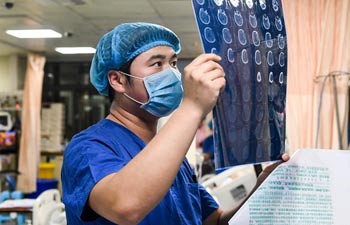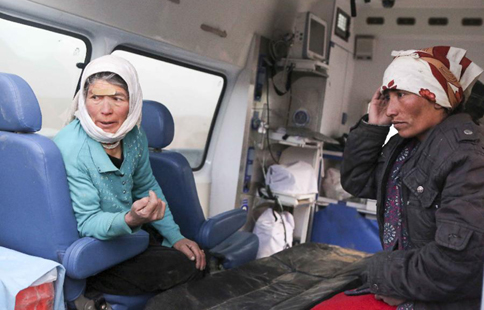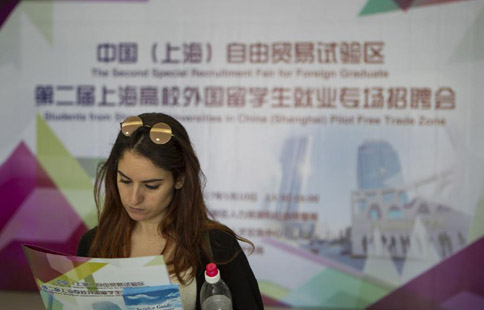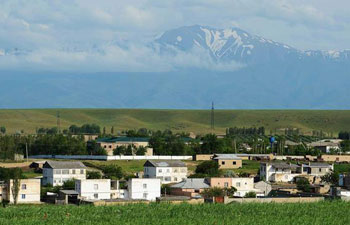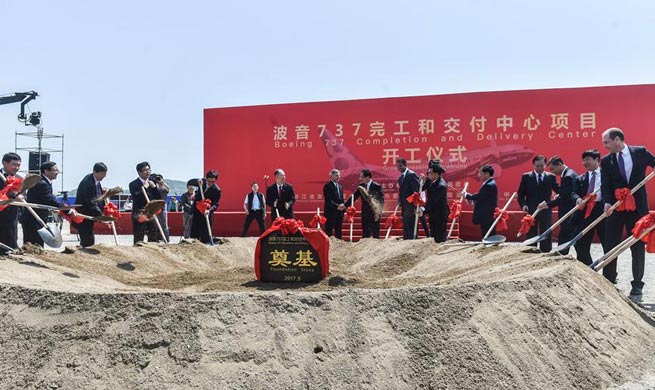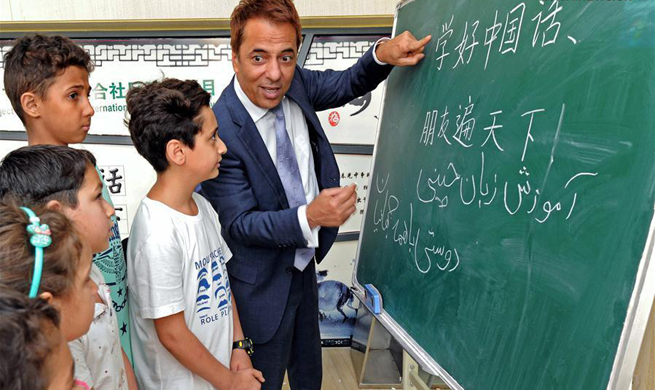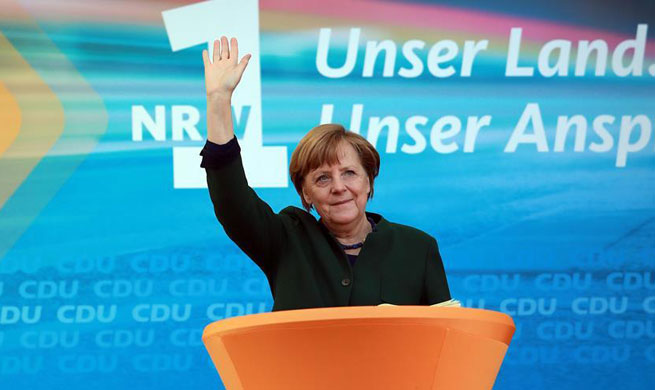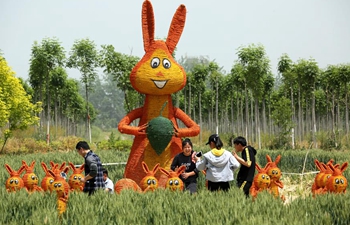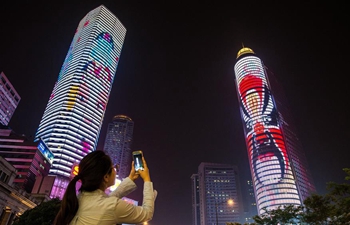TOKYO, May 11 (Xinhua) -- Japanese Prime Minister Shinzo Abe congratulated new South Korean President Moon Jae-in during a telephone conversation Thursday and expressed his hope that both countries would work closely in addressing the Democratic People's Republic of Korea (DPRK) issues.
The talks Thursday marked the first that have taken place between the two leaders since Moon was sworn in on Wednesday.
The pair discussed the DPRK's nuclear and ballistic missile development programs and Abe gave Moon his assessment of the situation to which Moon said he shares the same idea.
Abe said he wants to build future-oriented bilateral ties with South Korea, adding that with regards to the DPRK, dialogue for its own sake was pointless, and Pyongyang needed to show an earnest resolve and specific actions toward denuclearization.
Abe heard from Moon that the new South Korean president plans to engage more closely with the DPRK to dissuade it from furthering its missile and nuclear ambitions.
Moon said a day earlier that he would visit the DPRK under the right circumstances.
As for a 2015 bilateral deal made between Tokyo and Seoul aimed at settling a longstanding dispute over Japan's forcible conscription of sex slaves to serve the Imperial Japanese Army during World War II, Abe told Moon he hope he could manage his end appropriately.
Japan is still at odds with South Korea over "comfort women" statues erected to memorialize the women coerced into sexual slavery by the Imperial Japanese Army during the war.
Japan believes that a 2015 accord inked between Tokyo and Seoul and the paying of 1 billion yen (8.9 million U.S. dollars) last year to a South Korean fund to help former "comfort women" and their families as part of the deal would settle the matter.
But a South Korean civic group erecting a "comfort women" statue outside the Japanese Consulate General in the port city of Busan last December led to Japan recalling its ambassador to South Korea for three months to protest.
Prior to that, a "comfort women" statue was erected in front of the Japanese Embassy in Seoul, which also irked Tokyo.
Abe said the 2015 deal should be implemented, although Moon said that it had been viewed with caution in South Korea.
The two leaders agreed to hold talks as soon as possible, with the sidelines of a summit of Group of 20 major economies in Germany in July being earmarked as a possible opportunity for this to happen.
Abe also said to Moon that he hoped to hold a trilateral summit with China as soon as possible. Japan is supposed to host the next three-way talks.
Japan's Foreign Minister Fumio Kishida said in an Upper House committee meeting on Thursday that he was eager to call on Moon to jointly step up pressure on the DPRK and said that a multilateral approach was the best way to deal with the DPRK's provocations.
Japan's Defense Minister Tomomi Inada, for her part, said Thursday that strengthening security cooperation with Seoul would be paramount in dealing with a new era of threats from the DPRK's nuclear and missile programs.




